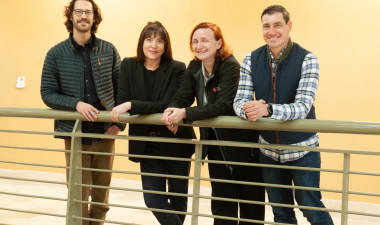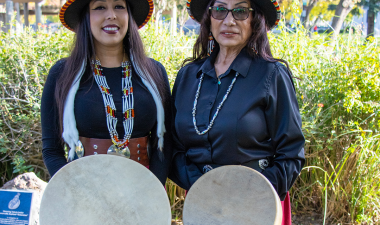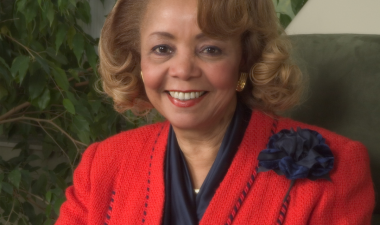Working on behalf of those in and near his district, U.S. Rep. Josh Harder (D-9th District) secured a $1.68 million Congressional Grant to be used over three years to train more Stanislaus State Master of Social Work (MSW) students and get them into the field.
Approached by a coalition of behavioral health services leaders from Stanislaus, San Joaquin and Merced counties, all of whom are facing a shortage of trained professionals, Harder responded with a grant that will be used for stipends to help prepare Stan State students.
“We need more mental health providers in the Central Valley, plain and simple,” Harder said. “I’m proud to have secured over $1.6 million in funding for Stan State, including its Stockton Campus. By expanding Stan State’s social work education program, we are supporting students and training them to become licensed social workers who will fill critical behavioral health provider vacancies across the region. This funding puts us closer to addressing the urgent shortage of mental health providers in San Joaquin County.”
The funds will go directly to qualified MSW students.
“It’s not a paid internship. It’s a paid stipend opportunity that students can use for their educational journey, whether that’s covering tuition or something else,” said Nancy Zamora, Master of Social Work Department field director responsible for student placement in clinical settings.
Five students have been awarded $10,500 each this academic year and should they remain eligible, will each receive $13,500 next year. The program will add more students each year so that 35 students over three years will be awarded stipends.
In exchange, those students agree to spend two years working in one of the three counties, either for Behavioral Health Services or a contracted partner, upon completion of their MSW.
-Josh Harder, U.S. Representative
“The county directors came to us and said, ‘We want to pursue funding; we want to grow. We need you to bring out social workers a lot quicker than what’s happening now,’” Zamora said. “Stan State can do that, but there's a lot involved.
“As part of our accreditation standards, students have very specific internship requirements and that’s the piece where we typically get stuck. If students don’t have placements, they can’t fulfill their educational requirements to earn their degree. That was our ask.
“We said, ‘We will partner in this journey if you guarantee the placements,’ and they did it,” Zamora said. “They committed to offering those openings, and they are figuring those pieces out and collaborating. Each county department has invested in making those opportunities available.”
The five students awarded stipends this academic year have been placed in a facility in one of the three counties.
Additionally, while the MSW program is currently operated out of the University’s main campus in Turlock with a self-supporting hybrid program offered in Stockton, that will change in the 2024-2025 academic year. A new cohort of the traditional program will be offered at the Stockton Campus, and some of those students may qualify for this stipend, according to MSW Department Chair and Program Director Pollie Bith-Melander.
“We are at the point of expansion, of moving forward, and staff and faculty are ready to take the department to the next level,” Bith-Melander said. “It is an exciting time, a transformative period, and we’re responding to the needs in the Central Valley at the exact time.”
MSW students put in 1,000 hours of clinical work through their two- or three-year programs. Finding facilities for students to complete those hours has sometimes been a challenge. This agreement eases some of that problem.
“We just had orientation with incoming students,” Zamora said. “We had 66 students, and I told the students they were very fortunate to be entering graduate school at this time, because these opportunities are not always there, will not always be there. I’m an alumna of our program. I would have loved an opportunity like this, but it wasn’t available.
“This is in response to the reality that exists, what our communities are facing. We are very fortunate this is being extended to our students.”
It’s a crisis long in the making, exasperated by the fallout from the COVID-19 pandemic.
“Conversations about community needs and the mobilization from the community as well as our University to address the gaps and shortfalls have been in place for as long as the program employees can remember,” Bith-Melander said.
All those years of discussions have resulted in this “great opportunity,” she said.
It’s a win-win that benefits Stan State students and the community.
“Our region faces critical shortages in health care and behavioral health care,” said Provost and Vice President for Academic Affairs Rich Ogle. “Stan State has been deeply committed to addressing the needs in our region in these important areas. This opportunity will allow us to expand our ability to train and place qualified students in critical jobs to serve the health care needs of our community.”



